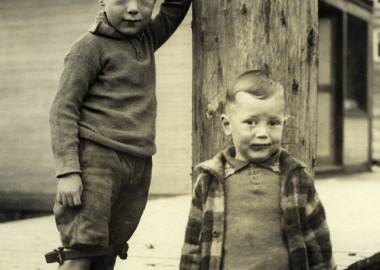
Authenticity has become a true buzz word in the world of marketing. But it’s for good reason. As a society, we’re faced with thousands of messages a day and we’ve become pretty adept at weeding out any voice that smacks of jargon or the smarmy salesman. As potential or existing customers, we’re looking for brands and companies that we can relate to, that we feel understand our needs and try to meet them, and that we trust. Gaining and keeping this trust is a major responsibility of businesses. And it’s through the crafting and telling of an authentic story that this trust relationship can build.
As potential or existing customers, we’re looking for brands and companies that we can relate to, that we feel understand our needs and try to meet them, and that we trust.
Before we go any further, though, it’s important to note that trust at its core is something that is developed between two people. As such, your company story needs to come from a place of personality. Creating internal personas to better understand your audience is helpful – in fact, it’s a highly recommended exercise in any content marketing strategy. But it’s also helpful to remember that your brand story isn’t a marketing piece per se – it’s a statement of your values, a narrative of where you’re coming from and where you plan on going. It comes from a place of honesty and emotion, and therefore, in theory, it will be authentic.
So how do you tell that story on behalf of your company or brand to build trust and ensure your authentic voice? Consider these questions:
What were your “aha” moments?
If you’re the business owner, or leader, think back to before you even began your business. Most likely there was a defining moment when you identified a need that wasn’t being fulfilled and you realized you had the solution to fill it. Do you remember where you were? What triggered the realization? Pinpoint these key milestones that sparked your business idea and talk about them in an engaging way. If you weren’t involved at inception, think instead of your brand’s moments of evolution, or its pivot points. What prompted the change? Again, what was the defining moment that made you see that change was required?
What were your steps to success?
Process – while it may not sound sexy – is actually a very intriguing topic for many customers. When your audience gets a behind-the-scenes glimpse into how you built your business, or how you conduct business today, they’ll feel welcomed in and trusted, and that trust in turn becomes mutual.
What have you learned along the way?
Equally important to your story as what you’ve done right is what you’ve done wrong. Being honest about your occasional setbacks and flat-out failures shows your audience a transparency they’ll appreciate. And don’t forget to tell them what you’ve learned from these challenges. Doing so highlights your willingness to grow and improve the business thanks to some hard lessons. You’re showing humility while also proving to customers that you’re not afraid to be continuously learning and adapting.
Who helped you get there?
Think hard about this one. Calling out the people – family, friends, mentors, staff – who helped you along the way shows your audience that people matter to you. Stories about these types of relationships can reassure your audience that they too will be treated with care, respect, and appreciation. This kind of customer relations is essential in fostering trust with your audience.
What are your next steps to build on the success of your business?
Expansion? New product? New direction? Keeping lean? Whatever your plans, you don’t want to suggest that your story is now over. A brand story is ongoing, just like our personal journeys. There are more chapters to be written and you want your customers along for the ride.
With these questions answered, a true – and hopefully engaging – story begins to develop. It should encompass your core values so that your audience, who presumably shares these values, feels that you stand for the same things they do and that the product or service you provide is something they actually want to hear about since it will on some level improve their lives.
In this “post-truth” world, perhaps things seem uncertain. Give your customers something to rely on and someone to trust. Being your authentic self – and sharing this story as it relates to your business – should help you get there.





